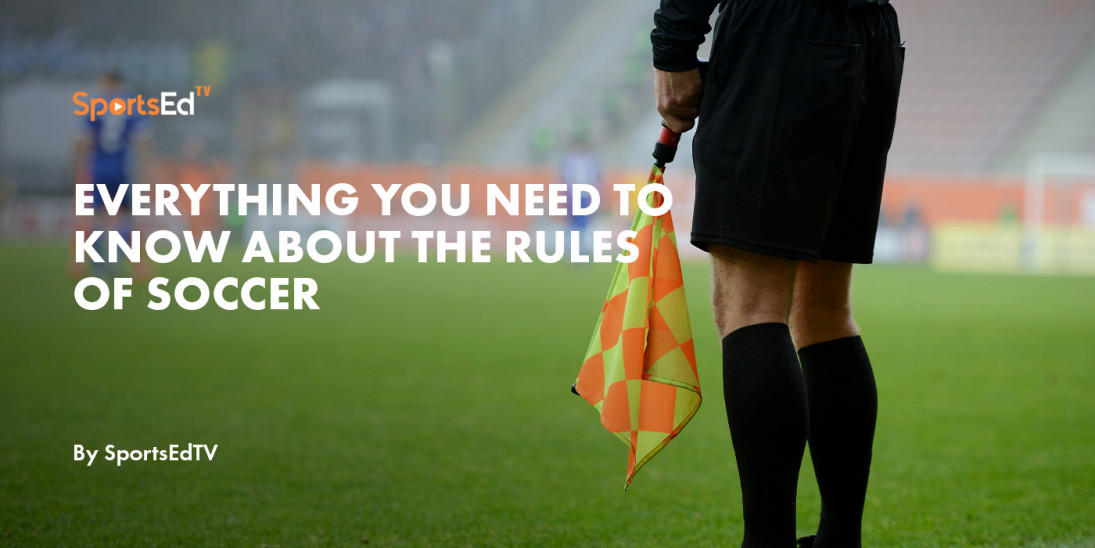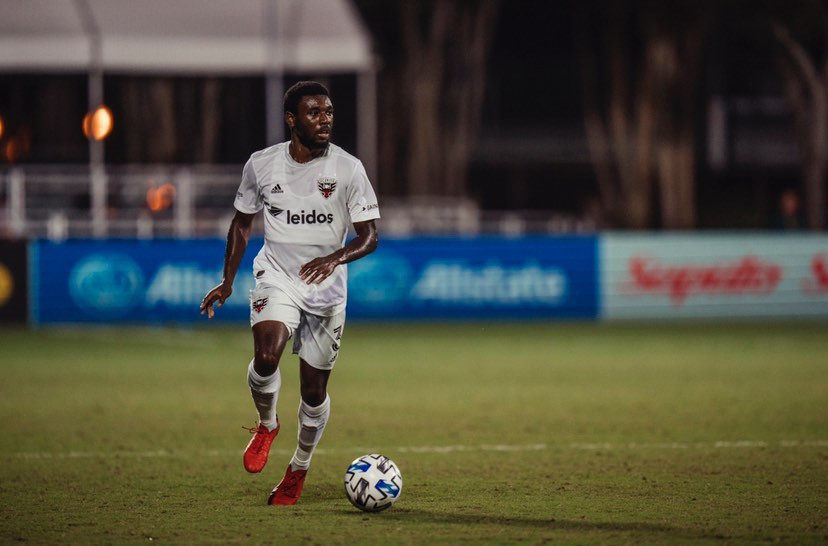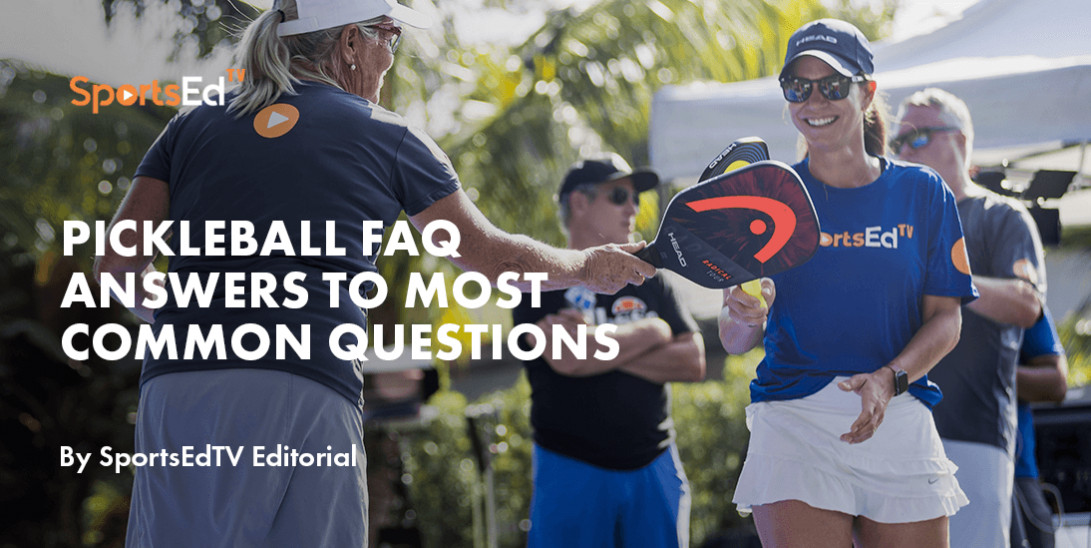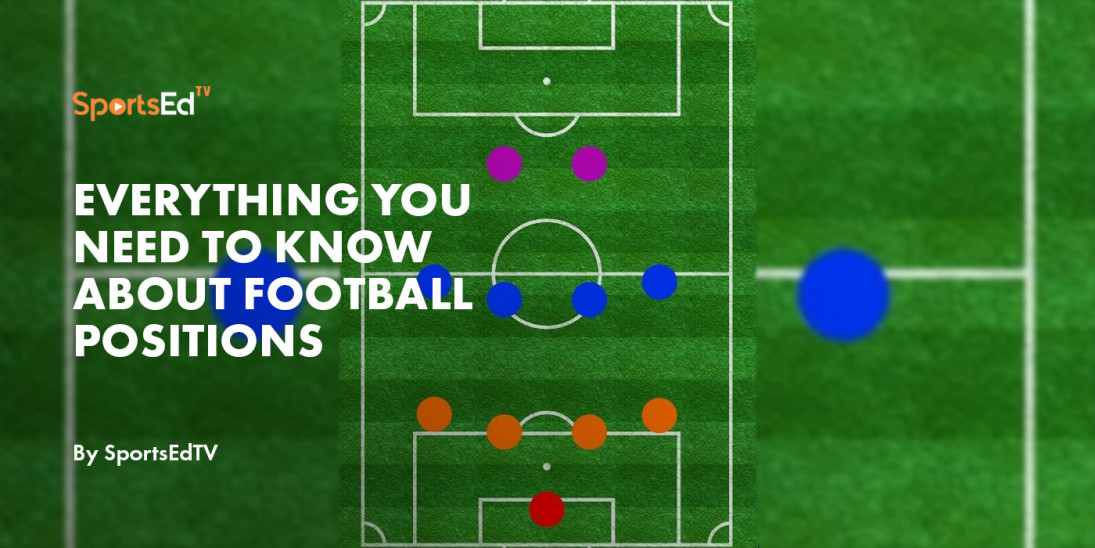Soccer
Welcome and thanks for visiting...

Reshaping Youth Soccer: SportsEdTV Talks to USYS CEO Skip Gilbert
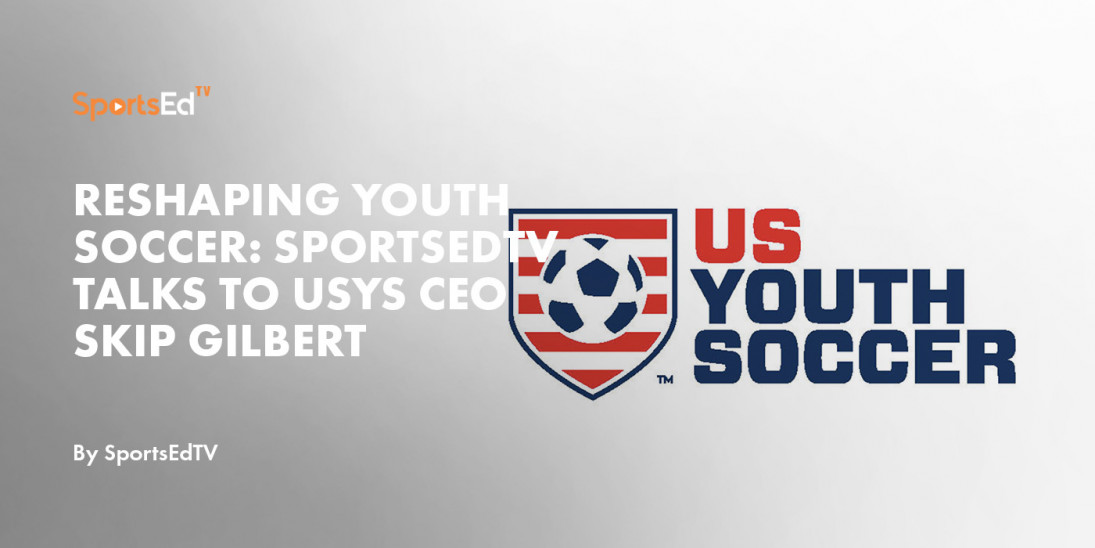
SportsEdTV Soccer is committed to bringing athletes, coaches, and parents pro-level Soccer education videos for FREE. All levels, anywhere, anytime. Check out our full instructional library and sign up to join our Soccer community.
Skip Gilbert is the Chief Executive Officer of US Youth Soccer (USYS). His passion for the sport extends beyond his professional experience. He played soccer for the Tampa Bay Rowdies of the NASL, US Olympic Development Team, and trained with Sheffield United and other clubs in Holland, and Hong Kong. He is a licensed soccer coach and member of the University of Vermont and the Lawrenceville School Athletic Hall of Fame. He talks to us about his role, the challenges youth soccer faces, and why the future looks bright for the game.
SportsEd TV: Can you explain to our readers your role as CEO of US Youth Soccer and what that entails from a 360-degree perspective?
Skip Gilbert: We are the largest youth sports organization in the country, and we register up to about three million players from the very competitive to those that are just looking to have fun. We do it through fifty-five state associations. They have the boots on the grounds in each of our states. Some states have two, but primarily we look at the programming platforms for everything from recreational soccer, where kids are just having fun through our Olympic Development Program (ODP) which, you know, in the past—especially now you see all the gray hair. I came through ODP, which was really the only pipeline way back when to be able to get into the professional or national team circles. Today, it is still an elite developmental pipeline trying to support player's growth both off and on the field of play. And then we have our National championships, Presidents Cup, and more. All of the other programming that pretty much every sport has for their players, coaches, referees, parents—you know, the constituent set, if you will. Having spent most of my career within the Olympic movement with some really great national governing bodies and some incredible sportspeople, that was very fulfilling, and it gave me a lot of background in some of the core business disciplines that I have today. But growing-up a player, coming-up through high school, playing in college, playing in the old North American Soccer League (NASL), being able to wear my country's emblem on a jersey—those are the things that connect you to the sport. And so, having this opportunity last January to step in, enables me to be able to ensure that tomorrow's player takes the game to a different level in this country. And for me, one of the first things that we did was to change the vision of U.S. soccer to where it is today, which is bringing communities together through the power of soccer, making lifelong fans of the game. As I look at my role, for those kids that go on in their elite pathway and they win national championships, congratulations, great for them. But the reality of success for me, or for the kids that are playing now and in 20 years, is still connected to the game. They might be a parent where their kids are playing. They might be a coach, a ref, or just a fan where they're wearing the jerseys of their favorite team. You know, they're cheering them on TV. They go to buy tickets. That, to me, is the success of a really good youth sports organization, which is to instill that love for a sport that perpetuates through your entire life. That, to me, is what defines success.

SportsEdTV: As a former college and pro soccer player, what would you say are some of the biggest challenges in youth soccer in the US today?
Skip Gilbert: The biggest challenge right now is trying to develop a level of consistency in the youth sport—not just in soccer. A lot of youth sport are fractionalized. You have different lanes. U.S. youth is one of the sanctioning bodies in this country. And everybody puts their hands up and says, “Well, our program is the best,” or “If you really want a college scholarship or if you really want to play professionally, we're going to do it over here.” The bottom line is that if you have a good program, you want the kids to succeed as far as they can go. And the impetus should really be on the kids deciding where their paths are going to be versus the adults telling them. I go back two years ago before I even got here. I was at a cocktail party, a summer cocktail party out on a lawn in Connecticut. And one of the Moms who found out about my playing background came up to me and said, “That's my son running across the grass.” And he was eight years old. And she asks, “What do you think? Can he be a pro soccer player?” And you just want to look at her and say, you and a hundred million parents around the world need to allow their kids to grow and develop their own passion points. You, by wanting them to be a pro, they’re not going to make it. If the kid truly has what it takes inside them, they're going to navigate that path to get them to where they need to be seen, regardless of what all the adults do. We try to make it really easy for the kids. The kids are the ones that carry the burden of actually getting there.
Sports Ed TV: The success of US youth soccer development is often measured by the success of young players abroad. Do you agree with this or see a change?
Skip Gilbert: No, I don't agree with that, and here's why. And it is the way of the world. Yes, in today's world, if you're playing over in England or the Netherlands or, anywhere in Europe or South America, people think that you've made it. And the problem with that is we need to get people in the mindset that playing in MLS, USL, NWSL, you've made it. And then it's a reflection of the great potential in this country. And again, here's why, we compete to get our, let's say, if we wanted to have the best eleven for our national team, we are competing against soccer players that are kind of in that world. The problem is in this country, so many great athletes may not choose soccer. They're going to go and they're going to look for a path to the NBA, Major League Baseball, the NFL, the NHL. Where in many countries in Europe soccer is it. If you really are a world-class athlete, you know, you're going to go play soccer. I use my background, certainly, if you're a Roger Federer [or] Rafa Nadal you're going to be one of the top five tennis players in the world. Sure, there's a draw. But what we want to be able to do is if we can get people to think making it in the United States is a reflection of how great the sport is in this country, then we've integrated the social fabric of this country with the sport. And here's an analogy to that. Every February, one hundred and eight million people watch the Super Bowl. I bet you if you surveyed those people the morning of the game, a good number of them couldn't tell you the name of the two teams that are playing, but they're there because it's the Super Bowl and everybody is going to watch the game. Well, in this country, we had 14 million watch the Women's World Cup, 12 million watch the men, and a few million less watch MLS Cup. So, we've got a long way to go to be able to have soccer within the social fabric of this country. We're getting there and we're making strides every day. But again, when people tell me, oh, that kid made it because he's playing in the Premier League. I really want to say no, that's wrong. Sure, they've made it. Congratulations to them. But if they've made it with the Columbus Crew, they've made it, and [both] they and we have to start thinking that way so that soccer truly becomes part of our social fabric.
SportsEdTV: Currently, parents and players are finding it difficult to practice or play soccer because of the pandemic. How do you keep soccer relevant for parents and players during this pandemic?
Skip Gilbert: I know you hate to answer a question with a question, but if we can say the same thing is how do you keep schoolwork relevant? When you think of a kid going to school, sure, it's classwork, it's studying, it's preparation. But it's also so much more than that. It's the dynamic of group movement; of being able to be with your friends, the social impact of it and that is the sort of microcosm of what soccer represents. Sure, as a player, you go out onto the field and you have skills, whether it's your technical ability, your tactical abilities, you demonstrate that on the field of play. But we all know that sports also make you who you are from a characteristic standpoint; being able to work with others, being able to follow the guidelines of your coaches, being able to take a setback and come around and come back stronger and better. So, all of the things that we as professionals in the work world, all a lot of the attributes that we carry into the boardroom, we learned out on the soccer field. And so, from that relevancy standpoint, when you can't get there, how can you do so? Well, some teams are helping by their coaches staying connected digitally, and walking the kids through it, and saying go out back and play. I remember growing up when there were days where there was nobody around, we didn't have a practice. I'd still go out to the backyard and I would just practice on my own. And it wasn't because I had a coach telling me, right, if I had to check the charts, it's because I love the game. I just want to play, I want to you know, I wanted to do something with the ball. I could care less who watched me, but I knew I wanted to get better so that when I walked out onto the field to play, I was ready to go. For a good chunk of players in this country or around the world, they're going to follow that. There are a lot of kids that are playing for fun, that some people fear that if they don't have that regular connection to the field and the game, they might walk away. Well, you know what? That's the risk. But if that comes and if we all get the green light, if that kid goes and now is playing baseball, good for that kid. From my perspective, it’s about health and wellness, you want to be healthy and have a health and wellness focus on life no matter what it is. But there will also be a lot of baseball players and football players that may say, you know what, I never tried soccer. Now that we're coming back, I'm going to give it a go. So, at the end of the day, we shouldn't be so concerned about one individual's decision on what sport they're going to be playing. We should be concerned that when they come back to the sport, we're ready for them and we're going to help them get where they want to go.
SportsEd TV: Can you tell us more about the USYS University initiative launching in January?
Skip Gilbert: When you're as big as USYS with three million kids, then you've got thousands of coaches and club administrators, and parents. One of the things that bring communities together, as our vision says [is] the power of soccer. And so, realistically, with that kind of leadership position we want to be able to offer a resource center so people can come to you, and so that they can get more out of the sport than just the X’s and O's. So, yes, one component of the university, as I mentioned early on about those volunteer coaches that are looking for those quick bites is to—oh, my God, I'm going out with a bunch of eight-year-old players. What in the world am I going to do? I've never taken the ball—How can they be able to show the kids that they can do something, have fun? But the reality is we want to be able to look at the holistic approach to training. And so, three of the partners that we're going to launch with, one is all about character development. How, again, can you not just be a great person on the field of play from a soccer perspective, but when you step off the field, how are you a great person in your community? And as you grow up in class and in a professional environment and it's all character development and what the sport gives you to be able to run. The second part is Musculoskeletal Wellness, you know, and it's if you get hurt, you go to a doctor, you get into a physical therapy plan and you come back to it. But also, with the demands that we're placing on kids today and the amount of activity that they're playing, are we providing them with enough information to be able to recognize for themselves what those telltale signs are? Maybe I need to slow it down a little bit because something's going on with my right knee or, you know, and if there is a problem, what can I expect? The more you know about things, the quicker you are to embrace the diagnosis from your Doctor, be able to accommodate those needs, and get back out on the field of play. And then the third aspect, which has been an important staple for me for years, and I think is even more critical and probably one of the more critical elements that we could go with, is mental health. There are kids today, whether they're sitting at home, [or] they're stressing out over not being able to show their skills to college coaches, that [are thinking], “What in the world? My life is coming to an end because I didn't get a scholarship.” –So many kids are going through that. And can we help that? You know, recognize what are the signs of struggling and to be able to share those signs and those stories of kids that have struggled and come back from it, you know? And so, we're taking a page from the major leagues and being able to say, here are some of those telltale signs of what can you do. So being able to build that kind of resource center again just connects all of us, you know, and it doesn't matter whether you're from a Northern state, a Southern state, from a high demographic profile or you're economically disadvantaged, or whatever your cultural differences are, everybody has to deal with those same issues. And if we can be very inclusive in all of that. Terrific. And then that's a good thing.
SportsEd TV: What does the future hold for the US Youth Soccer?
Skip Gilbert: Well, I'd like to say we're all going to be playing soon. You know, we cancel a lot of our competitions this year. It'd be nice. I'd love to actually be able to attend, you know, some of our competitions and be able to get out there. But again, the reality is we're looking at our national championships. We're asking for a lot of feedback as to what's the best format to qualify for, to get into and how do we play the same for the President's Cup, same for ODP? You know, I've had calls over the last couple of weeks with our technical directors of all the state associations say, look, when I was growing up, ODP was the only game in town. It was it. And it was incredibly relevant to my career. Is it the same today, and I say this to staff about everything we do if we were building USYS today for tomorrow's player, would it look exactly like what it is right now? And if the answer is yes, great, let's continue to support it. The answer is no. Why and how do we change it? So, we're evaluating everything we do. And I'll give you one example. The recreational side of the house, as they say, the base of the pyramid, and I beg for growth, build the base, grow the sport. Well, one of the things I hate in this sport is the term recreational soccer. And it's because so many people precede that word with the word just he's just a player. “She's just a rec player”. And that puts a diffusing in and a depressing mindset for the kid because they know, well, if I'm only a rec player or if I'm just a rec player and I'm not on the elite team, I'm no good. And so, therefore, at 9, 10, 12, 14, they decide to move on. They don't play. And even clubs today and leagues don't necessarily have leagues 14 and up. Four kids just to play for fun, and so we're going to do is we're going to kind of rebrand that, launch it in January and it's going to be called League America. And any of our state associations, any of our recreational leagues around the country can use that however they want. It's like open source. And so, the reality is, if everybody if the kids think that they're part of something bigger, you know, I'm just a rec player. And this kid says I play for League America. League America ultimately could be the largest soccer league on the planet because of the three of three million kids that play. You know, a small percentage of them were at that elite level. Everybody else is playing at the recreational level. And if they all say, hey, I'm part of League America, it feels like they're a part of something and it gives that meaning. And so, it's exciting. And I like to also say it's the official pipeline to collegiate club soccer. You're not going to be a D1 player if you go through League America your entire career without going into the elite platform. But if you just want to play for fun, you should be able to play in that environment right up until you go to college. And many colleges have club soccer programs. So if you don't have a left leg, you know, if you don't necessarily have the understanding of what to give and go is, you can still have fun and go out and play and share your love for the game. And ultimately, it comes back to what we talked about at the top of the show, which was, you know, we want kids to be fans for life. And if we can set it up for them so that they get there, then we've done our jobs and then that is where we'll be successful.
SportsEd TV: Thank you, Skip.
You can find out more about all the work US Youth Soccer is doing here.

